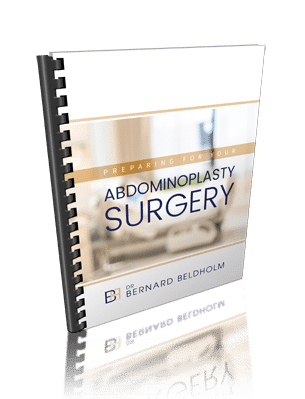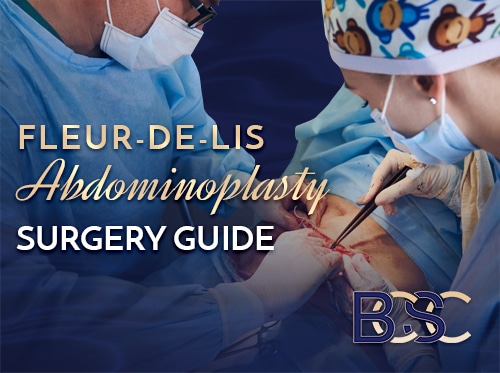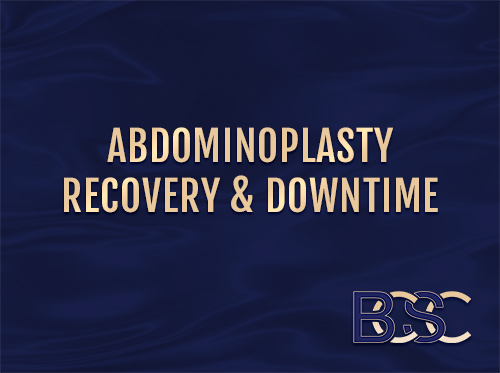Preparing for an Abdominoplasty Consultation
Every abdominoplasty journey begins with a conversation between a surgeon and their patient. When preparing for surgery, it is important for the patient to gather as much information as possible from their surgeon, but it is equally, if not more, essential for the person seeking an abdominoplasty procedure to provide the surgeon with several key pieces of information to ensure a positive outcome.
There is a dual purpose of the initial consultation between the doctor and the patient. One important function is for the provider to assess the patient’s medical history, goals, and expectations. The second purpose of the consultation is for the patient to obtain a keen understanding of what the procedure will entail, including any potential risks involved, realistic results, and all post-surgical probabilities.
Because the outcome of the abdominoplasty procedure will be one of the primary topics discussed during the consultation with the specialist, it’s important for the patient to come equipped with a complete list of questions, concerns, and a definitive description of the results being sought.
During the consultation, the surgeon will discuss the overall state of the patient’s health, including any medical conditions, drug allergies, and previous surgeries. The surgeon will review the entire abdominoplasty procedure, from pre-operative preparations, length of surgery, and anaesthesia to the recovery timetable, pain management, and post-operative care.

What to Expect During Your Abdominoplasty Consultation
There are several key topics that will be discussed during your consultation. This conversation will help your surgeon understand your goals, evaluate your physical condition, and determine the procedure that will suit you best.
These topics include:
- Surgical goals: It’s important for your surgeon to understand exactly what you hope to achieve with the abdominoplasty procedure you are seeking so they can determine the likelihood of whether these can be accomplished.
- Medical information: It is crucial to share details about any and all medical conditions, drug allergies, and current medications, including prescription and non-prescription drugs, herbal supplements, and vitamins. Supplements are often overlooked when listing current medications, but because they can potentially interact with anaesthesia or affect bleeding, it is critical to disclose this information during the consultation.
- Lifestyle: It is important to notify your surgeon about any history of tobacco use as smoking can impact wound healing and scarring.
It is also essential to be candid about drug and alcohol use or dependency, as this can impact pain control both during and after surgery. This is also the time to discuss your activity level, profession, and exercise routines, as this information may impact your surgery and recovery.
- Surgical History: It’s highly important that your surgeon be aware of any past surgeries, even those they may seem minor or unrelated as previous procedures may have an impact on your current surgery. This includes, but is not limited to, issues such as scar tissue and altered anatomy.
During the consult, the surgeon will:
- Evaluate your health: Your surgeon will conduct a thorough assessment of your overall health, existing conditions, and risk factors to determine suitability for surgery and any precautions needed.
- Take photos: Your surgeon may take pictures to document your current condition and aid in surgical planning. Photos provide a visual record of the patient’s recent appearance and aid in documenting the specific areas of concern such as excess abdominal skin, stretch marks, or muscle separation.
- Discuss surgical options: Your surgeon will explain the potential technique options and help you understand which best suits your goals and body type. They will also outline the potential incision placements, extent of tissue removal, and potential for scars.
- Plan your treatment: Based on the information provided, your surgeon will recommend a specific treatment plan detailing the surgical approach, expected outcomes, and potential follow-up procedures.
- Review Risks: The surgeon will discuss the potential risks and complications associated with the elected procedure such as infection, scarring, anaesthesia-related issues, and Capsular contracture. Additionally, they will outline the various steps to take to minimise these risks and emphasise the importance of adhering to post-operative instructions.
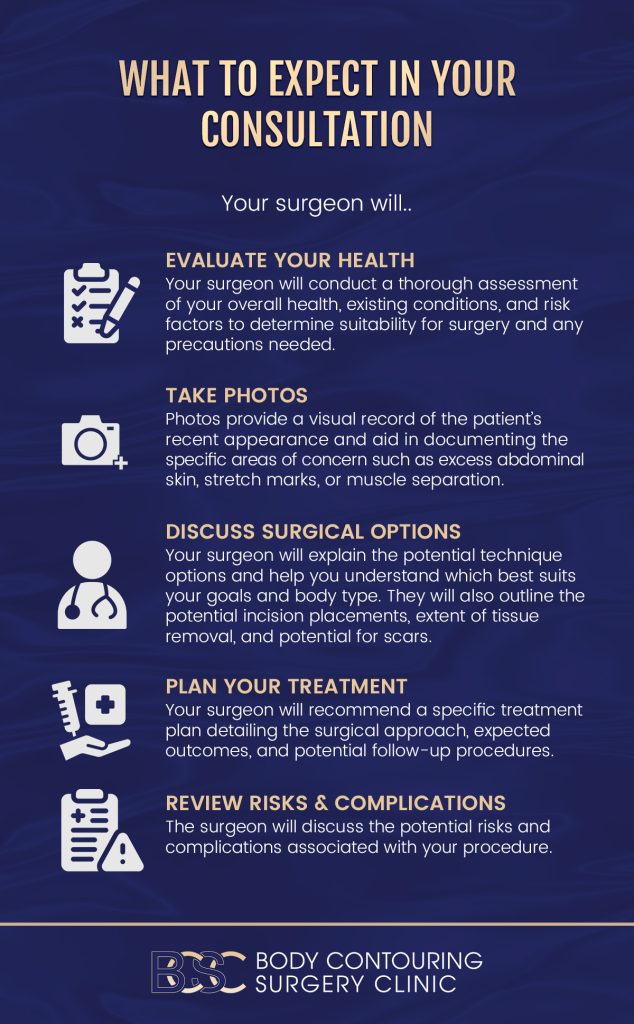
What Defines A Successful Consultation
The success of an abdominoplasty depends a great deal on the patient’s feedback provided during the consultation. Dr. Bernard Beldholm understands that you may have numerous questions and may have feelings of excitement, nervousness, and even slight apprehension. But there’s no need to worry. Dr. Beldholm will answer all of your questions and concerns during your 60 minute visit, during which time he will offer his undivided attention.
Following your meeting with Dr. Beldholm, you’ll meet with the patient coordinator who will provide you with a price quote and availability based on your desired surgical timeline.
In addition to understanding what a consultation is, it’s also important that you’re aware of what it is not. A consultation will in no way obligate you to make a decision and you will not be rushed or pressured into scheduling a procedure.
The purpose of the consultation with Dr. Beldholm is to assess the situation, determine his patient’s goals and expectations, and determine the best course of action, while also equipping you with all of the pertinent information needed to make an informed decision.

Questions to Ask at Your Abdominoplasty Consultation
Dr Bernard Beldholm (MED0001186274) M.B.B.S B.Sc (Moed) FRACS, is a Registered medical practitioner, Specialist surgeon (specialist registration in Surgery – general surgery.)
Dr. Beldholm emphasises compassion and individualised care, and he and his friendly staff are dedicated to making each patient feel comfortable during the consultation and throughout the surgical journey.
Here are some essential questions patients most commonly ask.
#1: Am I a Good Fit for Abdominoplasty Surgery?
Each patient has unique needs and goals. Your surgeon will perform a physical examination to assess your abdominal area, skin elasticity, and muscle tone. This evaluation helps determine the most appropriate approach for your procedure and whether additional procedures, such as liposuction or hernia repair, may be necessary.
#2: What Are the Surgeon’s Qualifications?
Choosing a qualified and experienced surgeon for your abdominoplasty is crucial to obtain the best results.
It is also ideal for you to enquire about the surgeon’s facility, whether it’s a hospital, outpatient centre, or office-based operating room. Ensure to verify the practice’s certification and protocols before you continue. This includes obtaining the qualifications of the entire surgical team, including anaesthetists and nurses.
#3: What is the Cost of Abdominoplasty?
Understanding the cost of the process is crucial for proper financial planning. For this reason, it’s important to ask for a detailed breakdown of all of the fees involved during your consultation. This should include the surgeon’s fees, facility costs, anaesthesia fees, and any other potential additional costs.
#4: Do you Have Before and After Photos?
Ask to see previous clients’ before and after photos to evaluate your surgeon’s skills and expertise. This might also give you a clue of the potential outcome you can expect. This way, you can set realistic expectations and assess whether the surgeon’s aesthetic approach aligns with your needs.
#5: What is the Expected Downtime and Aftercare Process?
Understanding the recovery process is essential for planning your post-surgery period. Ask about the estimated downtime, including when you can reasonably return to work, resume regular activities, exercise, and more. You will be advised on post-operative care and instructions such as wound care, activity restrictions, and follow-up appointments. By knowing this information ahead of time, you’ll be able to make necessary arrangements in advance.
#6: What Are the Underlying Risks of Abdominoplasty?
There are risks associated with any surgery, but there are specific ones inherent to abdominoplasty, in particular, and being well-informed about all of the potential risks and complications associated with abdominoplasty is crucial. Dr. Beldholm will discuss these potential issues, including infection, bleeding, scarring, anaesthesia-related problems, and unsatisfactory anaesthetic results. Additionally, it is important to ask about the surgeon’s steps to minimise these risks and their plan any complications should they arise.
By asking these questions during your consultation at Body Contouring Surgery Clinic, you’ll better understand the procedure and be better equipped to make an informed decision about your surgery.
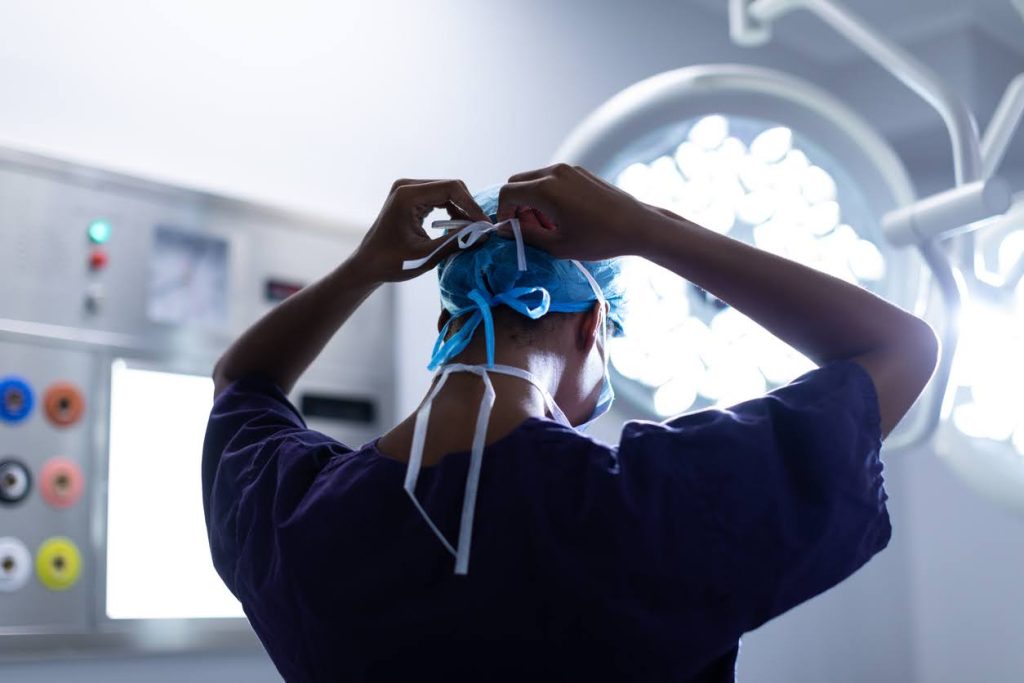
Bottom Line
Preparing for your abdominoplasty consultation is essential to ensure a productive discussion with your surgeon. It is necessary to share your surgical goals and health history and come prepared with a list of crucial questions during your consultation.
During your consultation at the Body Contouring Surgery Clinic, patients can expect a thorough assessment of goals, medical information, and surgical options while interacting with a highly experienced surgical team who prioritise patients and provide detailed insights into potential procedures.
Feel free to book a no-obligation, no cost consultation with Body Contouring Surgery Clinic to learn more about abdominoplasty.
References
- Impact of surgical consultation on outcomes in hemodynamically supported High-Risk percutaneous Coronary Intervention: insights from PROTECT II randomised study. (2016, May 1).
- Kahramanca, Ş., Kaya, O., Azılı, C., Güzel, H., Özgehan, G., & İrem, B. (2013). The role of general surgery consultations in patient management. Turkish Journal of Surgery/Ulusal Cerrahi Dergisi, 29(1), 20-24.
- Thilen, S. R., Woersching, A. L., Cornea, A. M., Lowy, E., Weaver, E. M., & Treggiari, M. M. (2018). Surgical speciality and preoperative medical consultation based on commercial health insurance claims. Perioperative Medicine, 7.
- Sorensen, M. J., Bessen, S., Danford, J., Fleischer, C., & Wong, S. L. (2020). Telemedicine for Surgical Consultations – Pandemic Response or Here to Stay?: A Report of Public Perceptions. Annals of Surgery, 272(3), e174.
- Chowdhry, S., Davis, J., Boyd, T., Choo, J., Brooks, R. M., Kelishadi, S. S., Tutela, J. P., Yonick, D., & Wilhelmi, B. J. (2015). Safe Tummy Tuck: Anatomy and Strategy to Avoid Injury to the Lateral Femoral Cutaneous Nerve During Abdominoplasty. Eplasty, 15.
- Egnew TR, Wilson HJ. Role modelling the doctor-patient relationship in the clinical curriculum. Family Medicine. 2011;43:99–104.
- Auerbach AD, Rasic MA, Sehgal N, Ide B, Stone B, Maselli J. Opportunity missed: medical consultation, resource use, and quality of care of patients undergoing major surgery. Arch Intern Moed. 2007;167(21):2338–2344.
- Katz R, Cimino L, Vitkun S. Preoperative medical consultations: impact on perioperative management and surgical outcome. Can J Anaesth. 2005;52(7):697–702.
